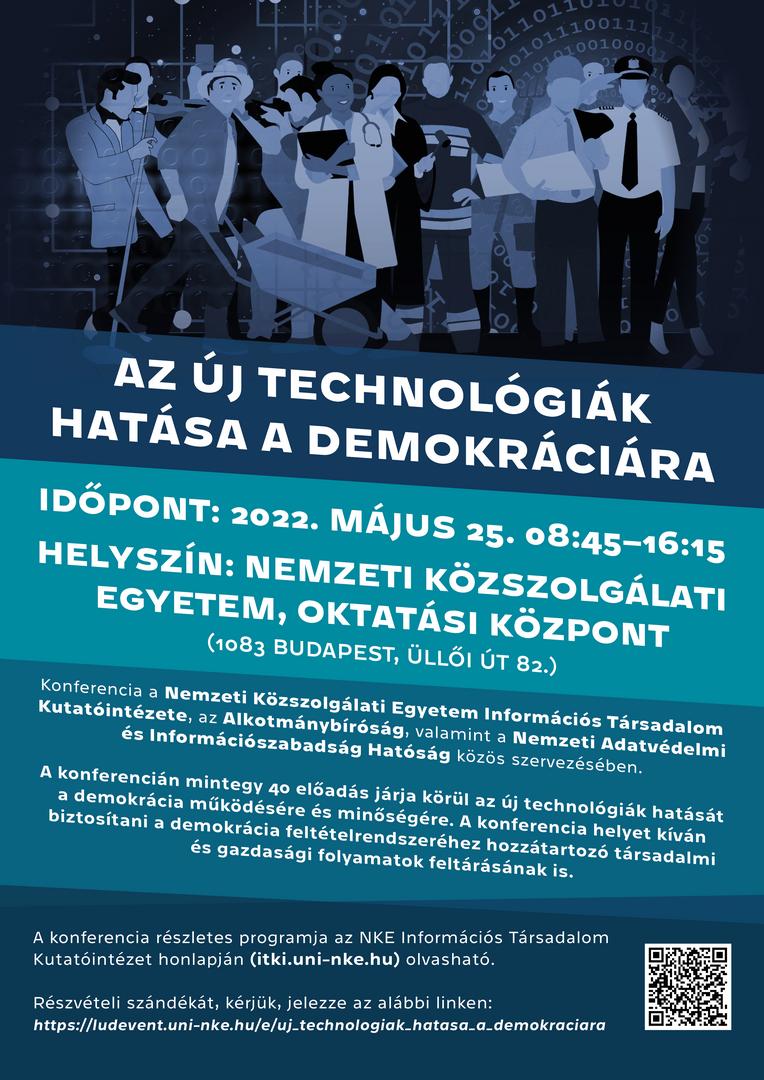Organizers:
The Constitutional Court, the National Authority for Data Protection and Freedom of Information, the Institute of the Information Society at the University of Public Service
Date:
25 May 2022.
Location:
University of Public Service, Education Centre, 1083 Budapest, Üllői út 82.
Registration: https://ludevent.uni-nke.hu/event/2009/
The Constitutional Court, the National Authority for Data Protection and Freedom of Information and the UPS Institute of the Information Society will again organise their annual conference to discuss issues related to the impact of technological developments on the state, society and law.
In 2020 and 2021, two specific "disruptive technologies" were on the agenda of our conferences: artificial intelligence and internet platforms. This year, without identifying a specific technology, we have chosen a key area of impact, democracy, as a focal point. We want to explore the impact of new technologies on the functioning and quality of democracy.
With the rapid development of information technologies, the widespread availability of digital tools and solutions is having an increasing impact on the democratic functioning of the state and on the social and economic processes that determine democracy. The quality of democracy is also affected by the duality between the new solutions, which offer new opportunities and benefits, and the new risks and damage they can cause.
As in previous years, this year's conference aims to take a broad horizon, covering both the positive and negative impacts of new technologies. On the one hand, there is a place for any new technology solution among the issues to be examined - from the internet to Big Data-based applications, artificial intelligence and digital tools -, and on the other hand, by broadening the scope of democracy, the conference will not limit itself to examining issues directly affecting the functioning of the state or constitutional rights, but will also explore the social and economic processes that are part of the conditions of democracy. In addition to lectures on constitutional law or political science, we therefore expect to see presentations on relevant issues in the fields of civil science, sociology and economics.
After the plenary sessions, the conference will feature 36 presentations in eight sections. The sections will cover the following topics:
Utilization of public data
Cybersecurity and democracy
State and public administration
Data-driven e-health and its future
Publishers, authors and platforms
Media and public sphere
Protection of privacy
Artificial intelligence
Detailed conference programme in Hungarian.
